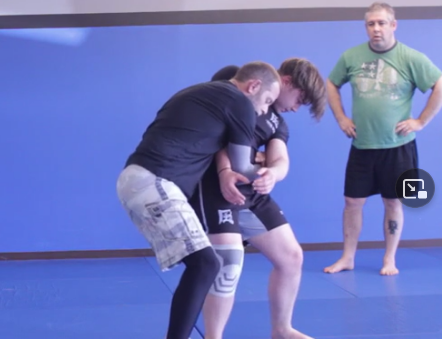Hey, Dr. Hagebusch here! A little about me to put the answer to put this recent question in context.
I am a 4th degree black belt in Brazilian Jiu Jitsu (BJJ) that has worked out with weights for decades, have a lot of strength and conditioning background, and am a chiropractor that has evaluated and managed thousands of musculoskeletal injuries. I say this just to put my comments into context. The following might be the longest answer to a simple question ever posted, lol!
What do you want to accomplish with exercise?
This really should determine what you should do when starting a strength and conditioning program.
One thing to consider is whether you will be competing in sport Brazilian Jiu Jitsu or grappling competitions. Brazilian Jiu Jitsu is a sport as well as a martial art and self defense system.
When I started training Judo, I had been lifting and gaining muscle for a few years prior to training. I was at the time big for my structure and very strong. I was talking with another very experienced student about my weight and competition. He asked me if I wanted to be tough or be good in competition. The weight class matters if you’re competing.
Competitions have weight classes. If you gain weight, it may move you up into another weight class. This might be fine or it might be something you want to avoid. It depends. You should talk to your coach if this is a consideration.
What and how much you eat will also have a big impact on your size.
Outside of this, strength matters a lot for many reasons… here are a few.
First having more strength helps you against tougher opponents. This is definitely not to say that you should out-muscle your opponents and training partners. The thing is that there are certain baseline amounts of strength necessary for any sport or movement. All things otherwise being equal, more strength will help you be more effective.
Strength can also help protect you against injuries. This is in my mind much more important than the previous point. You can strengthen every movement and every joint/muscle in your body. In BJJ, we tend to adopt a forward flexed posture that in and of itself over time can increase your risk of injury on and off the mat.
Strength training can work to improve strength asymmetries that develop over time. It can also help you avoid injuries in training. This is beyond the other massive benefits of strength training that reach far beyond Brazilian Jiu Jitsu.
Getting to the question of how a smaller person training BJJ should train – it does depend upon everything mentioned above.
You can definitely increase strength with body weight exercises. The other benefits are that you can do the exercises anywhere and don’t need special equipment. It also might be something that a person is more willing to do than to start lifting weights.
You can progressively increase difficulty of the exercises and work up to plyometric training to improve explosiveness. The downsides are that it might be more difficult to improve asymmetries and strengthen certain movements only relying upon body weight training. It’s also more limited in how big and strong you can get when compared to using weights.
Weight lifting better allows training all sides of a joint/movement. Weights also allow for a systematic progression to use heavier weights over time. There is no doubt that you can get bigger and stronger with weight lifting than only using body weight exercises. You may or may not want and need to get much bigger or stronger. It depends upon what you are trying to accomplish.
The truth is that probably a combination of using weight lifting and body weight exercises would be ideal for Brazilian Jiu Jitsu athletes – AND for everyone else whether they are involved in another sport or not.
It’s often been said that the best way to get better at BJJ is to do BJJ. Certainly this is true. It’s not really the entire story though. All good athletes involved in any sport work on strength and conditioning to improve their performance.
Strength training is also incredibly important for improving your resilience and reducing risk of injuries. If you get injured then you will lose some degree of training and this effects your progression.
As I mentioned above, a sport can through the nature of training put your body in abnormal postures that cause you to develop asymmetries of position and function that may increase your risk of injury in training, competition, as well as in your daily activities at home or work.
Everyone should pay attention to these problems and improve them ideally before getting injured rather than waiting for an injury to occur. This is a very important principle in looking at health and wellness. Adopting the right habits early before there is a a problem/bigger problem is better for you.

 Protected by Patchstack
Protected by Patchstack
Leave a Reply